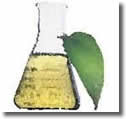|
Patents

Any independent person or company may file for a patent application. A Patent Letter is an ownership title whose validity term is determined by the State and which grants to the owner all legal rights on the required invention, including its amendments or improvements.
A patent application is held confidential by INPI for 18 months as of the date of application, after which the Patent Office will issue a notice for public disclosure. Henceforth, interested third parties will be allowed copies of the inventions´ specification report to be obtained in order to file eventual subsidies for examination or oppositions to the process.
The patent application will be submitted to Technical Examination within the legal terms, so that the Patent Office can analyze the complete application, existing prior art and eventual oppositions filed by third parties. As a result, the Examiner will issue the decision of acceptance or he will issue an Official Action informing the reasons for refusal. The response must be filed within a period of 90-day, and then the application may be accepted or refused again. Based on this new decision, there will be a deadline for payment of acceptance fees or for filing an appeal against an eventual negative decision.
From the application date the patent application, will be subject to payment of annuity fees in order to guarantee its maintenance and to keep the application active. The annuity fees will start in the 3rd year of the application.
The processing term of a patent application can vary, depending on the applicant, since the Law allows the “anticipation of the publication” to be applied for and also the “technical examination request” at any time, which will speed up the period of confidentiality and the analysis of each case.
- The Invention Patent (PI) is granted for a term of 20 years from its application date, without extensions, and it protects every “absolute” novelty, susceptible of industrial use.
- The Addition Certificate (CA) is valid for the same period as the main patent, regardless of its date of filing and will expire together with the main parent patent. It is normally filed to complement the protection of the parent application.
- The Utility Model (MU) is granted for a term of 15 years from the application date, without extensions, and it protects all the improvements applied to inventions previously patented by the applicant or third parties.
Scientific revolutions have brought to our midst the terms related to biology and plant cultivation of diversified species. Following international trends, Brazil has adopted procedures for the protection of Biotechnological Products, Pharmaceutical Products and also related to the handling and Plant Cultivation.
 - Biotechnology - According to new Law 9279, of May 14, 1996, which regulates the Industrial Property rights some articles which refers directly to biotechnology were introduced, like:
- Article 10, item IX, defines that every invention resulting from human effort and creativity, can be patented (with the necessary safeguards originated from analysis of the object to be patented), while every living organism or discovery found in nature is not considered patentable;
- Article 18, item III, mentions the patentability of transgenic microorganisms which comply with the requirements of novelty, inventive activity and industrial application and which can be proven as originating from direct human intervention.
Many aspects are still under discussion such as the fact that plants and animals are not patentable, but their obtainment processes could be patented, providing they satisfy the necessary legal requirements. Anyway, after engaging Trips Treat, Brazil started procedures for receipt and acceptance of subjects related to Biotechnology. The new Industrial Property Law confirms this acceptance, but with some transition measures applied to a patent application originated from other countries. Thus a new Decision issued in 1999, requires that all patent applications related to pharmaceutical products will depend on the acceptance of ANVISA.
 - Plants - The Plants Protection Law (No.9456 of April 25, 1997) originated from the need to create an International Organization to guarantee protection of plant varieties. This Organization was created in 1961 and has the cooperation of almost every Latin American country. In view of the International Agreements, Brazil was also forced to develop its own Plants Protection Law, which was sanctioned and published in April/1997 and regulated on November 5, 1997.
This Law foresees the protection and definition of the “Plant”, “new Plant” and “essentially derived Plant”. Thus, it is confirmed that all kinds of plants, derived or genetically modified from the already existing plants, can be patented.
One of the most important aspects is the definition of plant protection for a term of 15 years, as of the granting of the Provisional Protection Certificate, except for grapevines, fruit-bearing trees, forest trees and ornamental trees, including in each case, their graft inserts, for which the protection will cover an 18 years period.
|
